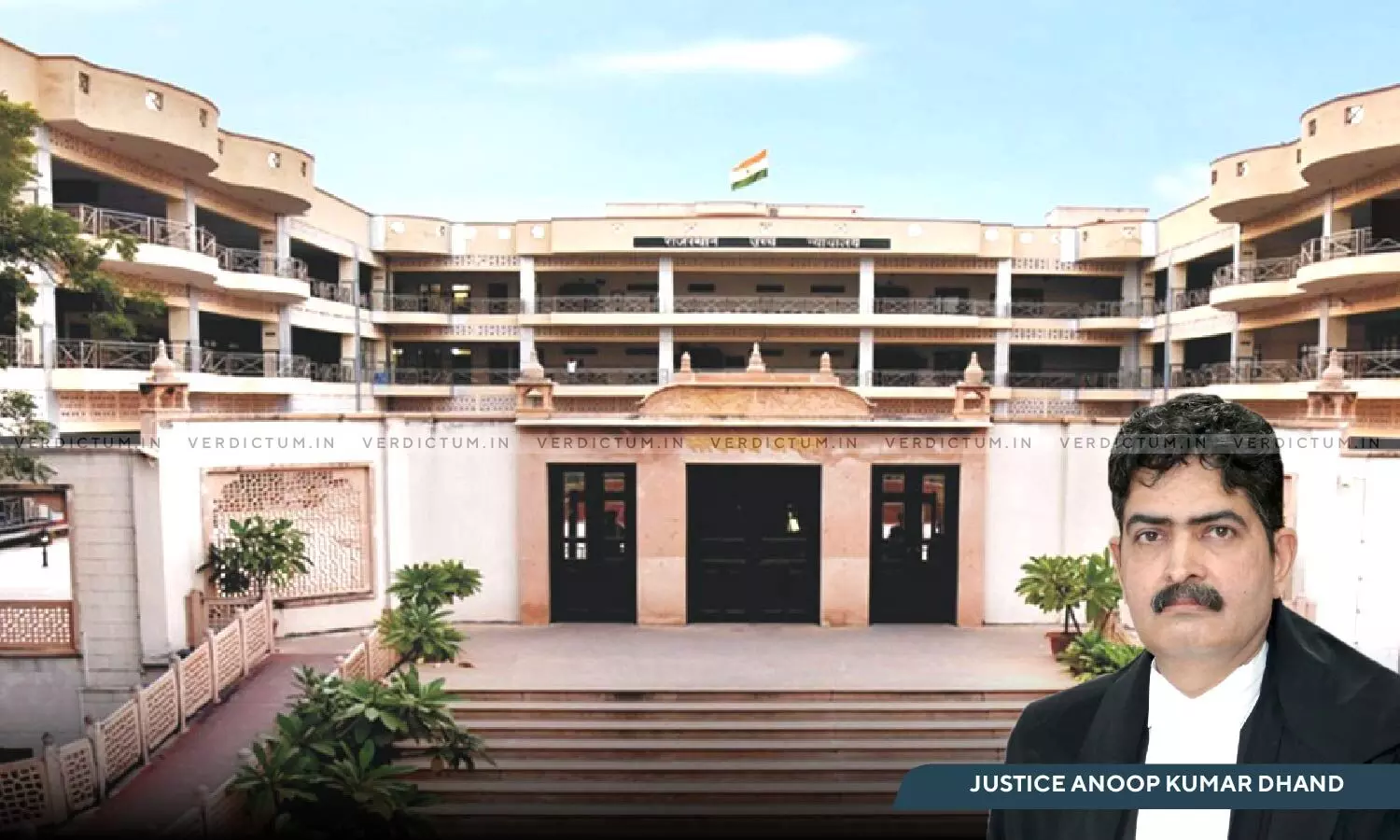
Justice Anoop Kumar Dhand, Rajasthan High Court
Can’t Refuse Passport To Travel For Haj On Ground Of Pendency Of Case U/s. 498A IPC: Rajasthan High Court
 |
|The petitioner approached the Rajasthan High Court challenging the letter of the Regional Passport Office by which his application seeking re-issuance of passport to go abroad for Haj, Umra Jiyarat was rejected.
The Rajasthan High Court has quashed a letter issued by the Regional Passport Office rejecting the litigant’s application for re-issuance of a passport and held that the pendency of a criminal case under Sections 498-A and 406 IPC cannot be a ground to deny permission to the litigant to travel abroad for the religious purpose of Haj, Umra Jiyarat.
The petitioner approached the High Court challenging the impugned letter passed by the Regional Passport Office, Kota, by which the application submitted by the petitioner seeking re-issuance of passport to go abroad for Haj, Umra Jiyarat was rejected.
The Single Bench of Justice Anoop Kumar Dhand held, “Pendency of criminal case under Sections 498-A and 406 IPC cannot be a ground to deny permission to the petitioner to travel abroad for the religious purpose, i.e., Haj, Umra Jiyarat. Such action on the part of the respondent amounts to violation of the Fundamental Right to personal liberty of the petitioner contained under Article 21 of the Constitution of India.”
Advocate Ajit Kaswa represented the Petitioner, while Advocate Manjeet Kaur represented the Respondent.
Factual Background
A criminal case was registered against the Petitioner under Sections 498-A and 406 IPC, and he had been facing trial in the criminal case. He submitted an application seeking permission for re-issuance of a passport for going abroad to perform the rituals of Haj, Umra Jiyarat. The aforesaid application submitted by the petitioner was disposed of by the Trial Court, granting liberty to the petitioner to approach the concerned Passport Authority. One more application was submitted by the petitioner seeking permission to go abroad, but the same was rejected by the Trial Court.
Reasoning
Considering the facts and circumstances of the case, the Bench stated, “Denial of permission to go abroad amounts to violation of Fundamental Right to a citizen contained under Article 21 of the Constitution of India.”
Referring to the judgment in Maneka Gandhi Vs. Union of India (1978), the Bench affirmed that each and every citizen of India has a right to go abroad. It was further noted by the Bench that in Maneka Gandhi (Supra) it was held that even the notification dated August 25, 1993, issued by the Ministry of External Affairs provides such procedure by which any person against whom a criminal case is pending can be allowed to depart from India, if permission is granted by the Competent Court.
“In view of the above, this Court is of the view that there can be no reason to deny permission to the petitioner to travel abroad just because a charge-sheet has been submitted against the petitioner under Sections 498-A & 406 IPC and the trial proceeding is pending against him”, the Bench stated.
The Bench further highlighted the fact that the Court is required to draw a balance between the right of the petitioner to travel abroad and the right of the prosecution to duly proceed with the trial against the petitioner.
Thus, quashing the letter issued by the Regional Passport Office, the Bench permitted the petitioner to go abroad for two months, subject to certain conditions.
Cause Title: Mohammad Muslim Khan v. The Union Of India (Neutral Citation: 2025:RJ-JP:29011)
Appearance:
Petitioner: Advocates Ajit Kaswa, Ajay Kumar, Ansar Indori
Respondent: Advocate Manjeet Kaur